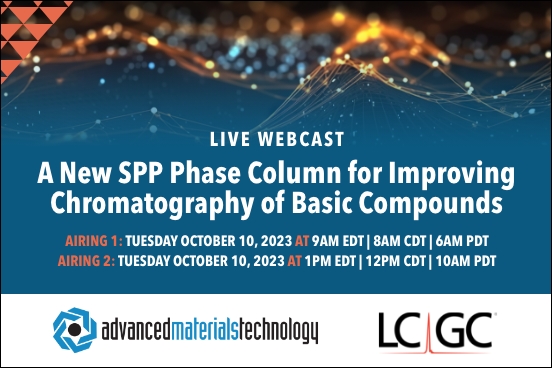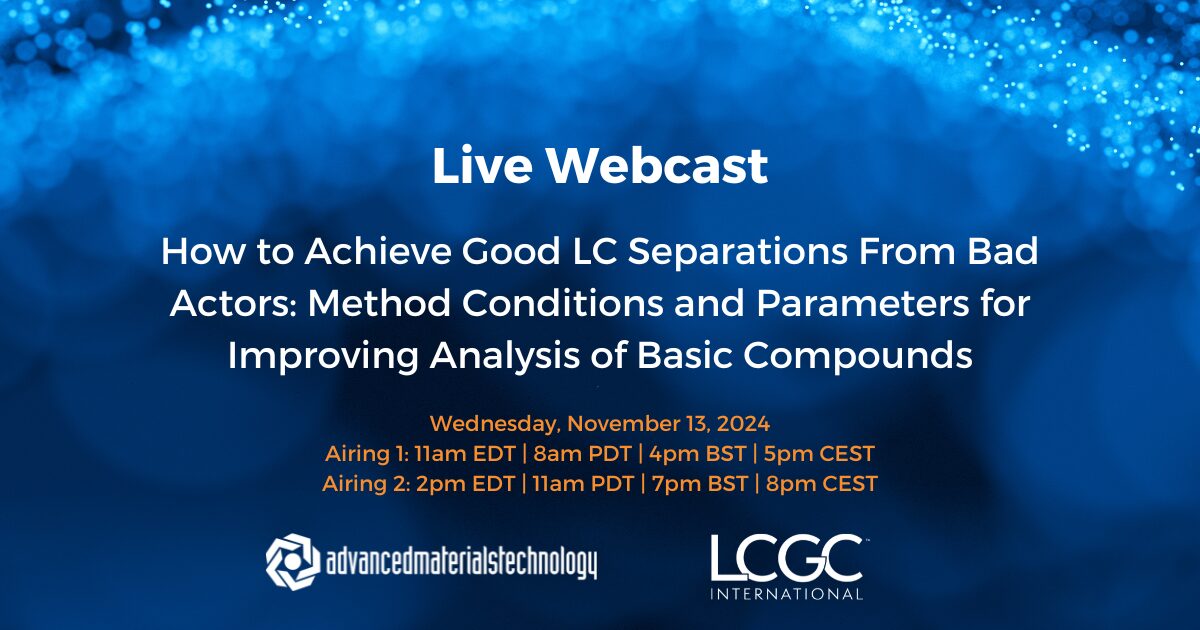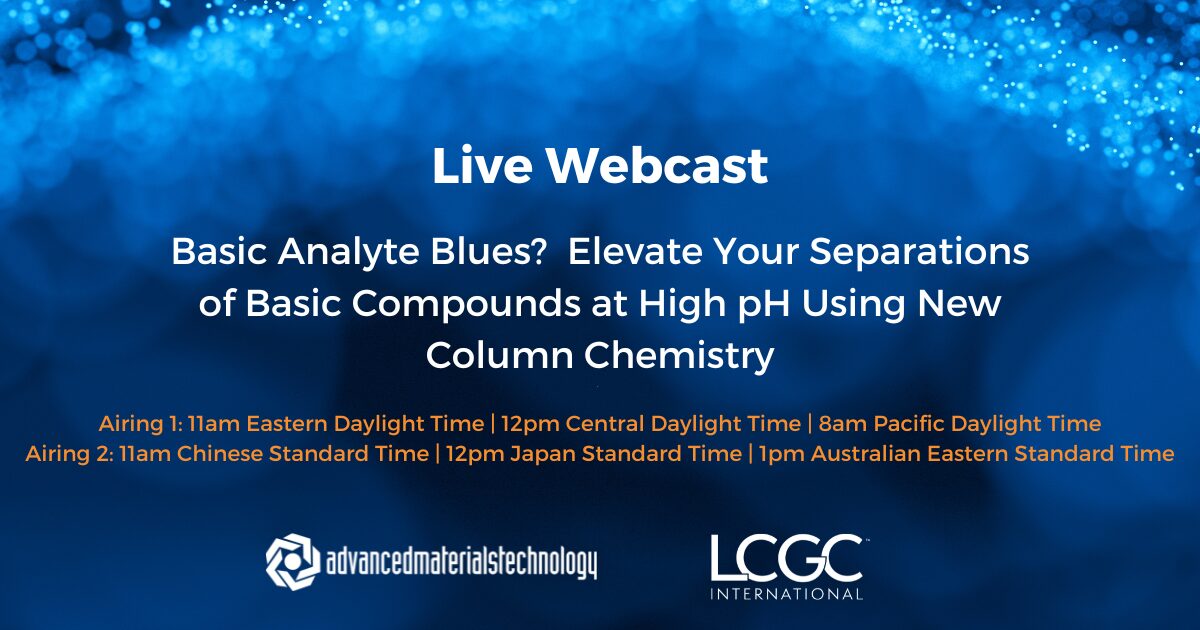Registration link: https://globalmeet.webcasts.com/starthere.jsp?ei=1697856&tp_key=11217cdf78&sti=amt When: Friday, December 13, 2024 Morning Session: 12:30 pm GMT | 1:30 pm…

A New SPP Phase Column for Improving Chromatography of Basic Compounds Webinar
Register for this free webcast at: https://globalmeet.webcasts.com/starthere.jsp?ei=1618433&tp_key=83ed8f478a&sti=amt
When: Tues, Oct 10 9:00 am and 1:00 pm EDT
Event Overview
Join us to learn about how a new phase chemistry from Advanced Materials Technology can improve LC and LCMS separations for basic compounds. With the release of the new HALO® Positive Charged Surface (PCS) stationary phase, chromatographers have another tool for better peak shapes and loading capacity of bases in addition to realizing the benefits of Fused-Core® particle technology for high-speed, high-efficiency separations. These new columns are designed for both small molecule and peptide analysis. Several applications will be shown to demonstrate:
- Improvement of peak shape for basic compounds using MS-friendly mobile phases for both small molecule and peptide analysis.
- Loading capacity improvement gains.
- An HPLC method development approach for basic compounds with an alternative selectivity.
Key Learning Objectives:
- Learn how a positively charged surface column chemistry benefits LC and LCMS separations.
- Understand the advantages of a positively charged surface column with Fused-Core® technology.
- Learn why using a low ionic strength mobile phase is desirable.
Who Should Attend:
- Chromatographers and LC/MS method developers who are interested in improving their separations for basic compounds as well as investigating new column phase selectivity.
Featured Speaker: Conner McHale , Technical Support Specialist Advanced Materials Technology
Conner McHale earned his BA in Chemistry from West Virginia University. He is with the technical support group at Advanced Materials Technology (AMT), where for over 8 years he has held various positions focused on quality assurance, technical support, and application development. Conner has developed hundreds of application notes covering many different market segments such as pharmaceutical, environmental, clinical, and food and beverage. Prior to joining AMT, Conner gained experience in food science, specifically winery science, where he was responsible for testing and monitoring the wine making process at a local winery. This included yeast preparation, monitoring fermentation temperatures, measuring brix levels, cleaning, and bottling—and, of course, sampling!



